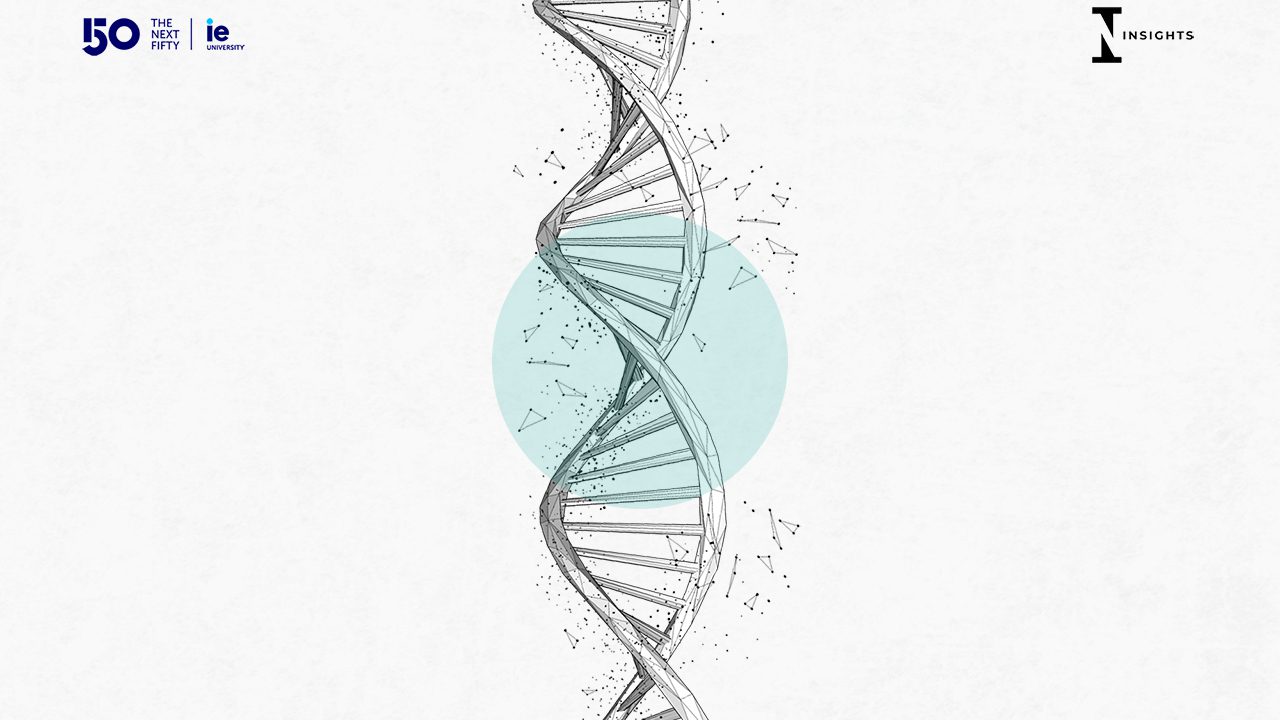Link copied
IE insights - IDEAS TO SHAPE THE FUTURE - Education

The Future of Biotech and More
The fusion of different fields of science will see groundbreaking developments in the field of biotech.
Biotech is about the micro-world. The one in all living creatures, be it plants, animals, or humans. And “tech” means that we can engineer it. Hundreds of years ago, there was already some engineering by simply sorting certain animals or plants with specific features and combining them with others. The discovery of the DNA double helix by James Watson, Francis Crick, and Rosalind Franklin in 1953, and the exact understanding of how proteins are built, opened many new opportunities in both, medicine, and agriculture.
Suddenly, one could manipulate cells to produce specific molecules and proteins, e.g., inserting a human gene into a bacterial cell to then produce insulin, which first succeeded in 1986. This was a revolution, but also just the beginning. With later developments such as CRISPR, a gene-editing tool that allows one to cut and paste genes or part of genes in any cell, new dimensions for disease treatment and for the food industry were established. In the future, CRISPR gene editing could even potentially be used to create new species or revive extinct species.
These and many other technologies in the biotech world are already being utilized successfully – the question is: What is next?
There are two types of developments: The ones slowly building on what was discovered and developed before, and the quantum leaps (or, more correctly: paradigm shifts), such as nuclear fission or the internet or the discovery of the DNA double helix. These are harder to predict.
What will have a strong impact is the combination or rather fusion of different fields in science, such as biotech and generative AI. One does not need to be very creative to think of all sorts of developments: Beyond curing genetic disease, they may be completely avoided. Beyond curing cancer, it may be completely avoided. Beyond curing Alzheimer’s, it may be completely avoided. Longevity, which constantly increased until recently, but since 2011 has shown no significant improvement, may increase again dramatically. DNA might be used for coding (DNA computing), and AI will be used to edit the DNA. Technologies will be intertwined. This may be happening as soon as 2030.
Then we have other combinations: Implanted chips (yes, with DNA computing) receiving and delivering information from brains, muscles, and other organs, diagnosing early failures, and linking individuals to therapies in real time. We will have support to augment both, physical capabilities, and brain functions. This might take a little longer, say, happening 20 years from now.
And in 50 years? Here the question about quantum leap developments is decisive. But it seems viable to have embryos being produced by any cells and babies growing in artificial wombs, people working less (given generative AI) and living longer, no lack of food supply, but also no need for messaging apps any longer as it will be possible to send a message by thinking only. Many of our senses (smelling, tasting, …) will be mimicked by artificial tools helping several industries. Mini robots will travel our bodies for repair. What about other challenges? AI will come up with many suggestions about how to best solve our most pressing ones. And will we travel by dismantling our cells and building them up elsewhere? Here I may be going too far, who knows?
Does this all sound surreal? It may today, but we very quickly got used to new, useful technologies in the past and we certainly will in the future.
Will all our problems be solved? Certainly not, especially as we, humans, are great at creating new problems, as our genes are still – and will probably still be – selfish.
© IE Insights.
